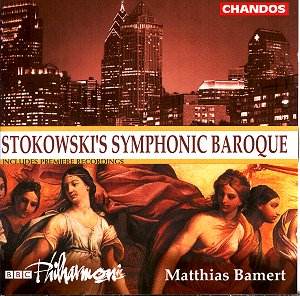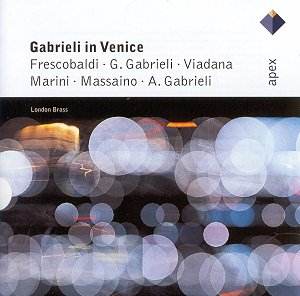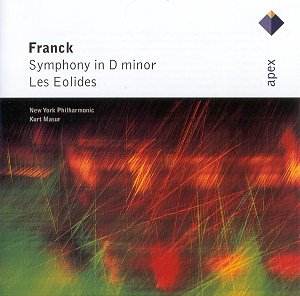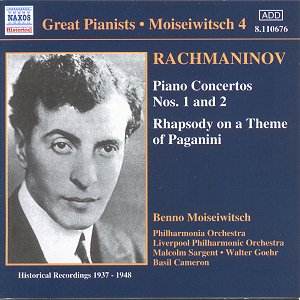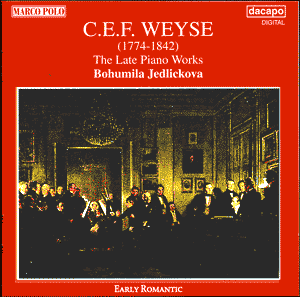 Composer: Christoph Ernst Friedrich Weyse (1774-1842)
Composer: Christoph Ernst Friedrich Weyse (1774-1842)
Works: Late Piano Works: 8 Etudes Op. 51 (1831), 4 Etudes Op. 60 (1837), Allegro di bravura in A Minor Op. 50 (1831)
Performers: Bohumila Jedlickova (piano)
Recording: Rec. 1993, Copenhagen, Denmark
Label: Marco Polo/Dacapo DCCD 9307
Christoph Weyse, a pivotal yet often overlooked figure in the Danish Romantic landscape, emerges in this recording as a composer whose late piano works reveal a fascinating journey from classical roots to a more personal, romantic idiom. Born in 1774, Weyse’s early career flourished in the vibrant musical milieu of Copenhagen, where he was influenced by notable figures such as Schulz and later ignited by the visit of Ignaz Moscheles in 1829. This recording encapsulates the culmination of his piano output, offering insights into his evolution as a composer and pianist.
Bohumila Jedlickova’s interpretation of Weyse’s Etudes, particularly those from Op. 51 and Op. 60, merits close examination. The etudes showcase Weyse’s late stylistic shift, where he embraces a more adventurous harmonic language and intricate textures reminiscent of his contemporaries while still retaining a classical framework. Jedlickova navigates this terrain with remarkable agility and flair, particularly in the Allegro con brio in E Major and the Allegro di bravura in A Minor. Her playing is marked by a keen sense of rhythm and dynamic contrast, bringing to life the intricate chromatic scales that Weyse favored.
The performance is characterized by a deep expressiveness that resonates with the emotional undercurrents of the music, especially in the slower sections of the etudes. Jedlickova’s ability to articulate the nuances of phrasing and her deft handling of tempo changes breathe vitality into these often overlooked works. For instance, in the Allegretto in C sharp Minor, her delicate touch illuminates the harmonic subtleties, allowing the listener to appreciate the balance between tension and resolution that Weyse so masterfully constructs.
Recording quality plays a pivotal role in this release, with the piano’s clarity and presence well captured in the acoustics of the hall. The engineering allows for a full appreciation of the instrument’s tonal range, and the subtleties of Jedlickova’s performance are effectively conveyed. The microphone placement enhances the dynamic contrasts and ensures that the listener is drawn into the intimate dialogue of the music. Compared to other recordings of Weyse’s works, such as those by noted pianists who sometimes overshadow the composer’s subtleties, Jedlickova’s interpretation stands out for its commitment to conveying the spirit of Weyse’s late style.
The late piano works of Weyse represent a significant chapter in his output, reflecting a transition from the classical tradition towards a more expressive, individualistic approach. Jedlickova’s performance not only highlights the technical demands of these etudes but also underlines their emotive depth and lyrical qualities. This recording serves as a valuable addition to the repertoire, shedding light on a composer whose contributions deserve greater recognition and appreciation in the broader context of Romantic music.
